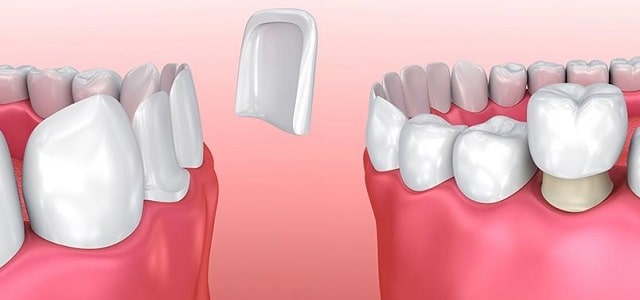
A smile is one of the best assets anyone has for making first impressions or establishing the confidence to meet their goals. When your smile isn't what you expected, you can search for solutions. Crowns and veneers in South Bay are nothing new to the market, yet they remain a favorite among patients as well as dentists.
Both crowns and veneers can be good options for someone who wants to enhance their smile; there are pros and cons to each that should be considered when making this important decision. The success rate is very good for both crowns and veneers, so the chances are low for any problems. After learning more about these dental restorations a patient can talk with their dentist about the available solutions. Care is simple in both cases; each just needs daily brushing and flossing. Also, they both require regular visits to the dentist for cleanings and checkups.
Veneers
Veneers are thin and fit on the front of the tooth. Each one is made of either porcelain or resin that withstands consistent use; when considering the veneers the porcelain ones are less likely to stain. They are commonly used for problems like chips or discoloration as well as anything minor. Several teeth can be done at a time or just one; it all depends on what the patient wants to accomplish. Veneers come in traditional or no prep choices. The traditional requires more grinding on the tooth than the no prep to fit the veneers.
In either case, they only require several visits from consultation to finish to put them on. There are advantages and disadvantages to veneers. Some advantages are a more natural look to the tooth, less work required by the dentist, and long-lasting among similar options; they can keep their look for up to 15 years. The biggest disadvantage is veneers cannot be reversed and the underlying teeth can never be restored to their original state. Instead, most patients will find that only a thin layer of the original tooth remains.
Crowns
Crowns cover the whole tooth. They are thicker and are made of porcelain, metal or a combination of the two. The strength of the crown makes it tougher than a veneer; they are better used when the teeth have large fillings, are broken, or need a root canal. Crowns give a patient the chance to keep a tooth that otherwise might be removed. There are advantages to crowns that may not be found in other solutions.
Crowns
Crowns cover the whole tooth. They are thicker and are made of porcelain, metal or a combination of the two. The strength of the crown makes it tougher than a veneer; they are better used when the teeth have large fillings, are broken, or need a root canal. Crowns give a patient the chance to keep a tooth that otherwise might be removed. There are advantages to crowns that may not be found in other solutions.
The whole tooth is protected and it is a more permanent solution considering they can last a lifetime in many cases. Some cons of a crown are the tooth can become more sensitive to hot and cold and more of the tooth is removed to make it ready. Dental insurance is more likely to cover at least some part of getting a crown whereas they will not cover veneers.
It is also important to note that crowns can fall out for a variety of reasons such as consistent grinding from stress or eating crunchy foods on a regular basis. So keep that in mind when you weigh the pros and cons of veneers vs crowns.
It is also important to note that crowns can fall out for a variety of reasons such as consistent grinding from stress or eating crunchy foods on a regular basis. So keep that in mind when you weigh the pros and cons of veneers vs crowns.
